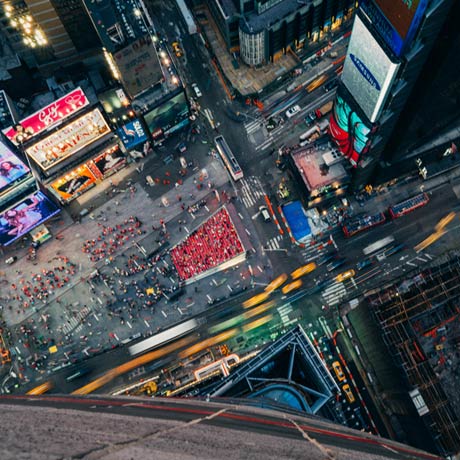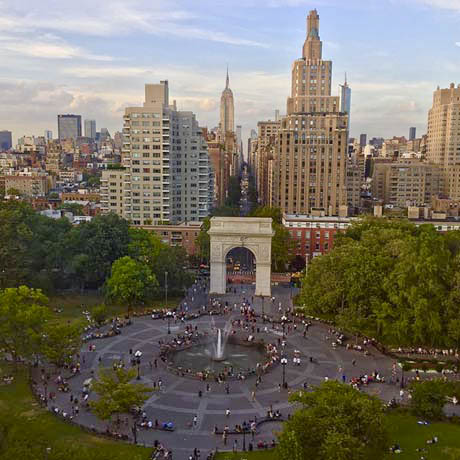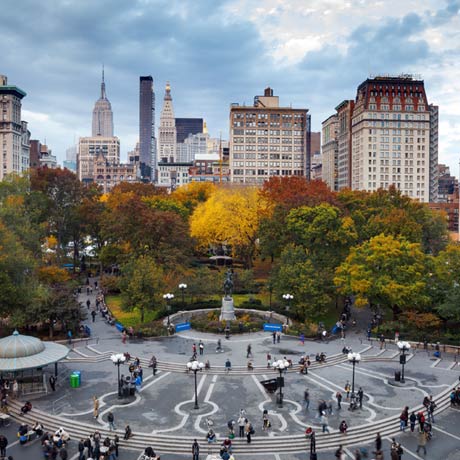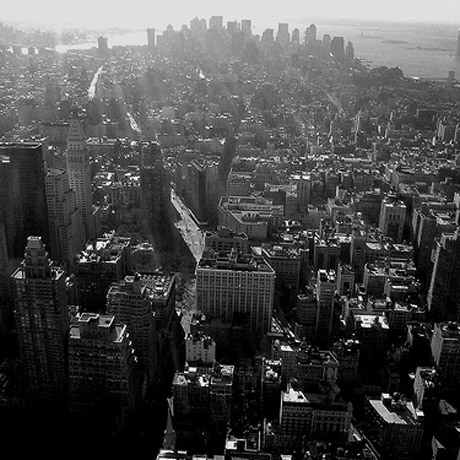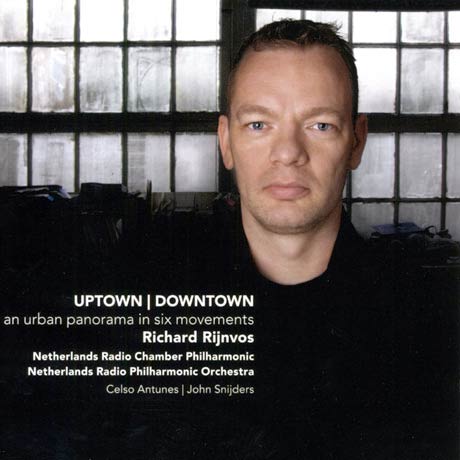Cycle | Manhattan Square Dances
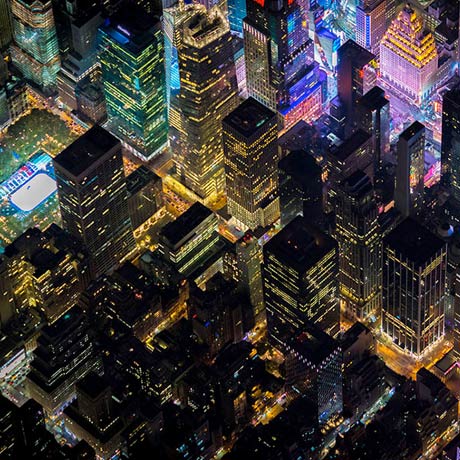
for 2 identical orchestras (1996-2008)
30 minutes | no.21+23+25
This 3-part concert suite arose as an assembly of the following pieces:
Each piece can be performed separately or as part of the entire cycle
Scoring of the Complete Cycle
orchestra I: 2.2.2(bcl).2-3.2.2.1-perc(2)-str(6.6.5.4.4)
orchestra II: idem
Commissioned by
Royal Concertgebouw Orchestra (Times Square Dance)
Holland Festival (Washington Square Dance)
ZaterdagMatinee (Union Square Dance)
Written for
Royal Concertgebouw Orchestra (Times Square Dance)
Netherlands Radio Symphony Orchestra (Washington Square Dance)
Netherlands Radio Philharmonic Orchestra (Union Square Dance)
Première
Times Square Dance: 4 June 1999 - Concertgebouw, Amsterdam (Neth.)
Washington Square Dance: 19 June 2004 - Docklands, Amsterdam (Neth.)
Union Square Dance: 11 April 2009 - Concertgebouw, Amsterdam (Neth.)
award
Matthijs Vermeulen Prize 2000 (Times Square Dance)
Press
[...] Uptown|Downtown, completed in 2008, is "an urban panorama is six movements" that celebrates life in New York. Two works interlock to form the cycle: one, NYConcerto for piano and chamber orchestra would form the odd-numbered movements; the other, Manhattan Square Dances, for two identical orchestras, yields the even-numbered ones. Yet despite the artifice, the music is joyous and infectious, a real treat. ****°
Andrew Clements, The Guardian, 2 August 2012
Dutch composer Richard Rijnvos believes that New York epitomises "the precarious equilibrium between chaos and order", a principle borne out in the two triptychs that comprise Uptown|Downtown. All six pieces reference American composers, most obviously in the title echo of Ives's Central Park in the Dark, and the Ivesian use of two orchestras in Manhattan Square Dances, combined with a Feldman·esque compositional process eschewing narrative development.
And alongside direct quotes from Gershwin in the evocative bustle of Grand Central Dance can also be discerned the frantic, exclamation-mark cartoon music of Carl Stalling, with its scurrying ascents and descents, like a character trapped in Tex Avery surrealism. ****°The Independent, 4 August 2012
